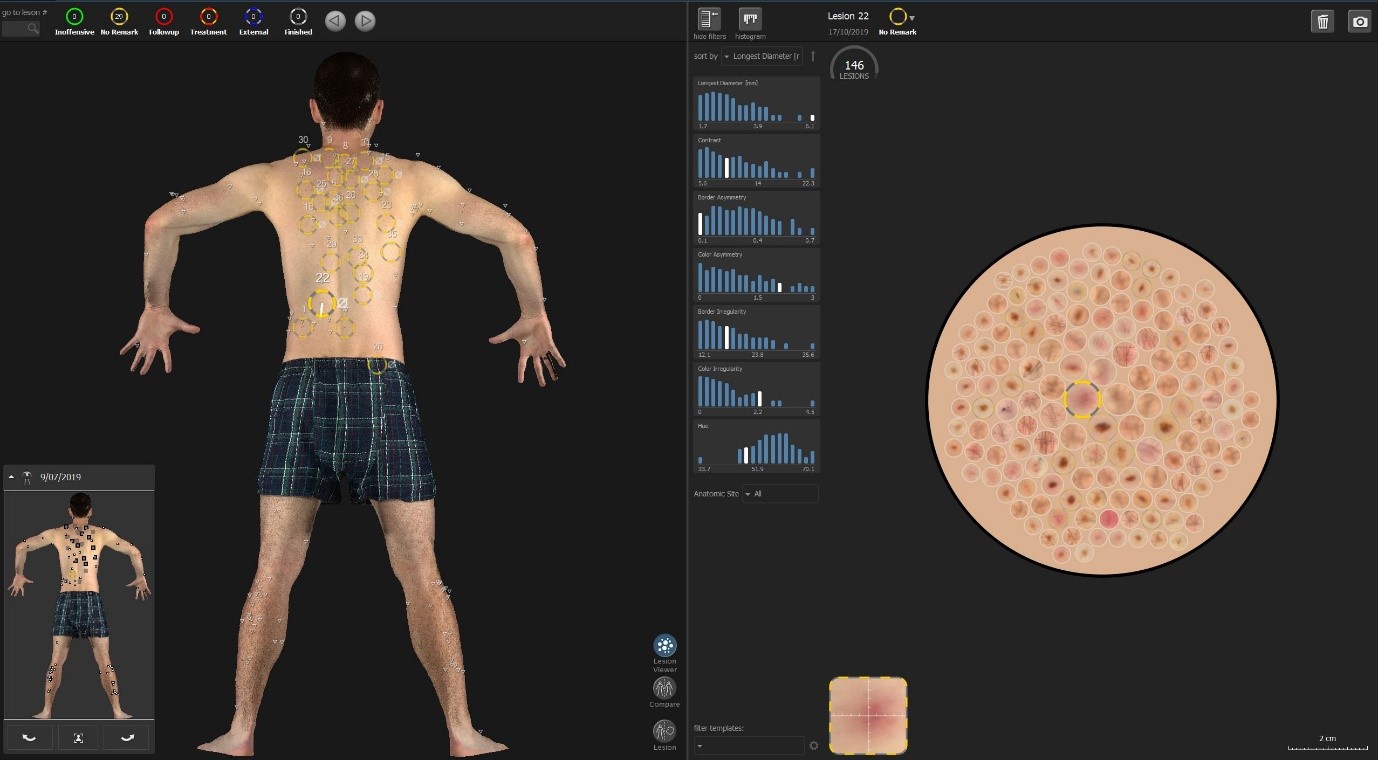A world without melanoma
Queensland is best known for its pristine beaches, rugged outback landscapes and perfect weather. But with year-round opportunities to enjoy the great outdoors, the ‘Sunshine State’ has also earned the ranking of highest rate of melanoma in Australia.
Each year, approximately 3,600 Queenslanders are diagnosed with skin cancer.
The Dermatology Research Centre exists to combat these statistics, with the vision of creating a world without melanoma through more effective screening and early detection programs.
The Centre’s VECTRA Whole Body 360 technology creates a unique, 3D avatar of a patient – stitching together images taken by 92 high resolution cameras to produce a 3D model that replicates the skin’s surface in fine detail.

“The primary use of the total body photography system is to track changes in skin spots which are a tell-tale sign of a developing melanoma,” says Professor H. Peter Soyer, UQ Chair in Dermatology and Director of the Dermatology Research Centre.
“Imaging over time provides the opportunity to detect any change of a given spot.”
Rod Flude, a melanoma survivor, has directly benefitted from the Centre’s 3D-imaging technology.
“My life as a young adult involved being in the sun, either at the beach or playing sport, and we used very little sun protection. Maybe some zinc on the nose or on your lips but your back was fair game,” he said.
“Many years ago, my wife influenced me to get a mole on my back examined that she was worried about. That particular mole turned out to be fine but they found another that needed excision and biopsy. I was shocked that it was a level 2 melanoma.”
“A melanoma diagnosis is a big hit to your perception of mortality.”
“I was very fortunate that my cousin was a plastic surgeon who performed a wider excision and I saw him every three months after that. He found three more melanomas over following years, which were thankfully all early stage.”
Rod was introduced to the Vectra 3D imaging study at UQ’s Dermatology Research Centre in 2015 by his dermatologist and has been involved in various studies ever since. Through his involvement with the Centre, Rod has become a passionate advocate for skin cancer awareness.
“Before I retired, I often spoke of the Vectra study with my team. A colleague of mine, who was in her mid-30s with 3 kids, mentioned she had a mole on her leg that she was concerned about. We encouraged her to get it checked out. When she did, it turned out to be a stage four melanoma. Thankfully, with surgery, she’s in the clear. But it was close.”
Rod’s colleague now shares her experience freely with others and has been able to help save the lives of many more through encouraged skin checks.
“It’s not all about being sun safe, it's very concerning that there's a cohort of 20 - 40 year olds who are at risk and don’t know it. Like my colleague, some of these diagnoses are genetic and not due to sun damage. The awareness isn’t there so they typically pick up a melanoma later when the disease has advanced,” Rod said
“If there is a good thing about melanoma it’s that it’s generally visible. It can be difficult to diagnose by clinicians early, but the awesome technological imaging and AI advancement inspired and given veracity by Professor Soyer and his team will make a huge difference to future generations.”
Through his advocacy, Rod is supporting the Centre to continue this lifesaving work.
“I can’t thank the researchers and clinicians enough for everything that they do. My family is also incredibly grateful – because, at the end of the day, they will be future beneficiaries of all this research,” said Rod.

